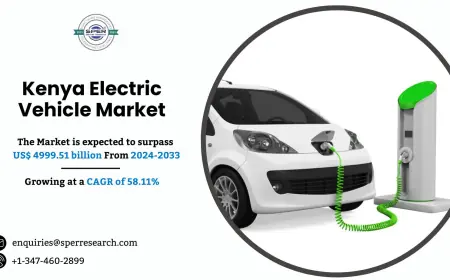Education Loan Options for Private Institute Study
Get easy access to education loan for private institute studies. Cover tuition fees, living costs, and other academic expenses with flexible repayment options. Apply today and secure your future with financial support tailored for private educational institutions.
Education Loan Options for Private Institute Study
Pursuing higher education from a private institute can be an excellent stepping stone toward a successful career. However, with quality education comes a significant financial burden. Whether it’s a management course, engineering degree, medical education, or professional certification, private institutes often charge higher fees than public universities. This is where an education loan for private institute study becomes a viable solution to finance tuition, accommodation, travel, and other academic-related expenses.
In this post, we will explore in detail the education loan options available for students enrolling in private institutes, eligibility requirements, documents needed, types of loans, interest rates, and repayment tips to ensure a smooth borrowing experience.
Why Choose a Private Institute?
Private institutes offer specialized programs, better infrastructure, personalized teaching, and exposure to industry collaborations. Many of them provide global curriculums and maintain higher standards of education in niche fields. However, the cost of these facilities and experiences often translates into higher tuition and living expenses, especially for full-time courses.
While students may dream of enrolling in these institutions, financial limitations can be a barrier. Education loans serve as an enabler, giving students the ability to focus on their studies without worrying about immediate financial constraints.
Types of Education Loans Available
When it comes to education loans, students have various options to choose from based on the loan amount, collateral, co-applicant requirements, and course type. Below are the primary categories:
1. Secured Education Loans (With Collateral)
In a secured loan, the borrower is required to pledge collateral such as property, fixed deposits, or other valuable assets. These loans are ideal for students applying to private institutes with high fee structures as the sanctioned amount is typically higher. The interest rates tend to be lower compared to unsecured loans.
2. Unsecured Education Loans (Without Collateral)
For students who do not have access to collateral or want to avoid pledging assets, unsecured loans offer flexibility. However, they generally come with higher interest rates and may require a strong co-applicant or guarantor with a stable income source. These loans are often granted based on academic performance, institute ranking, and future earning potential.
3. Undergraduate and Postgraduate Loan Options
Depending on the level of education, students can apply for undergraduate or postgraduate education loans. For professional degrees such as MBA, engineering, or medicine, loan amounts are often higher, and repayment plans are structured to accommodate extended timelines post-course completion.
Eligibility Criteria for Education Loans
Before applying for an education loan for private institute study, students must ensure they meet specific eligibility conditions. While these can vary slightly between lenders, common criteria include:
- The applicant should be an Indian citizen.
- Admission must be secured in a recognized private institute through merit or entrance examination.
- The course must be full-time, part-time, or executive in nature and recognized by education boards or regulatory bodies.
- A co-applicant such as a parent, guardian, or spouse may be required, especially for unsecured loans.
- Academic performance, entrance test scores, and course prospects may be considered.
Key Documents Required
Applying for an education loan involves submission of various personal, academic, and financial documents. Here's a checklist to keep ready:
- Admission letter from the private institute.
- Detailed fee structure of the course.
- Academic records (10th, 12th, graduation certificates).
- Identity and address proof (Aadhaar, PAN, passport).
- Co-applicant’s income proof (salary slips, ITR, bank statements).
- Collateral documents (if applying for a secured loan).
- Passport-sized photographs.
Ensuring all documents are complete and accurate can reduce processing time and improve approval chances.
Loan Amount & Coverage
One of the most critical aspects of an education loan is understanding what expenses it covers. Loans for private institute studies can range from a few lakhs to several crores, depending on the course and location. These loans generally cover:
- Tuition fees
- Admission and exam fees
- Hostel or accommodation charges
- Travel expenses (for outstation or abroad programs)
- Study materials, books, laptop, and equipment
- Miscellaneous living expenses
Some lenders also provide an additional buffer for unforeseen academic or personal costs during the course duration.
Interest Rates & Processing Fees
Interest rates for education loans depend on multiple factors such as loan type (secured or unsecured), course category, and co-applicant’s financial profile. Generally, rates can range from 8% to 15% per annum. It's essential to compare interest rates and processing charges before finalizing a loan to avoid hidden costs.
Processing fees are usually 0.5% to 2% of the loan amount and may be waived off in certain cases. Always check the detailed cost breakdown in the sanction letter.
Repayment Terms and Moratorium Period
Repayment flexibility is a key benefit of education loans. Most lenders offer a moratorium period during which the borrower is not required to repay the loan. This period usually covers the course duration plus 6 to 12 months, giving students time to find employment before starting EMI payments.
Loan repayment tenures vary from 5 to 15 years. Longer tenure means lower monthly installments but more interest outgo, while shorter tenure results in faster clearance with higher EMIs. Choose a repayment plan that aligns with your future income expectations and career path.
Benefits of Taking an Education Loan
An education loan for private institute study not only makes quality education accessible but also offers several benefits:
- Reduces the immediate financial burden on the family.
- Allows students to focus on academics and career goals.
- Builds a positive credit history early in life.
- Tax benefits under Section 80E of the Income Tax Act.
- Flexible repayment options post-graduation.
Students with good academic records and those enrolling in reputed institutes have higher chances of loan approval with favorable terms.
Tips to Increase Loan Approval Chances
Education loans for private institute studies are becoming increasingly competitive. To boost your chances of approval, consider the following tips:
- Choose Recognized Institutes: Lenders prefer students admitted to reputed private institutes known for academic excellence and high placement records.
- Maintain Strong Academic Records: Your academic performance, entrance exam results, and overall profile play a crucial role in building confidence with lenders.
- Involve a Co-applicant: A financially stable co-applicant (like a salaried parent or guardian) improves loan eligibility, especially for unsecured loans.
- Opt for Collateral if Possible: If your required loan amount is high, offering collateral can significantly increase approval odds and lower interest rates.
- Be Transparent with Documents: Ensure all paperwork is accurate, complete, and up-to-date to avoid delays or rejections.
How to Apply for an Education Loan
Applying for an education loan has become easier with online platforms and digital application processes. Here's a step-by-step overview:
- Research and Compare: Use online tools to compare different lenders based on interest rates, repayment terms, and approval timelines.
- Check Eligibility: Verify the loan criteria for your chosen private institute and ensure you meet the conditions.
- Prepare Documentation: Collect all required documents including academic, financial, and identity proofs.
- Submit Application: Apply online or offline as per the lender’s process. You may need to attend a verification or counseling session.
- Await Sanction: Once documents are verified and application approved, you’ll receive a sanction letter with loan details.
- Disbursement: Loan amount is disbursed directly to the institute or student account as per the agreed structure.
Final Thoughts
With rising education costs, especially at private institutes, availing a well-structured education loan is a smart financial move. It allows students to unlock learning opportunities without compromising on the quality of education due to financial limitations.
Choosing the right education loan for private institute study involves careful research, planning, and consultation with family and financial advisors. By understanding the loan types, eligibility criteria, repayment options, and interest structures, students can confidently invest in their future and build a strong academic and professional foundation.
What's Your Reaction?
 Like
0
Like
0
 Dislike
0
Dislike
0
 Love
0
Love
0
 Funny
0
Funny
0
 Angry
0
Angry
0
 Sad
0
Sad
0
 Wow
0
Wow
0



















































